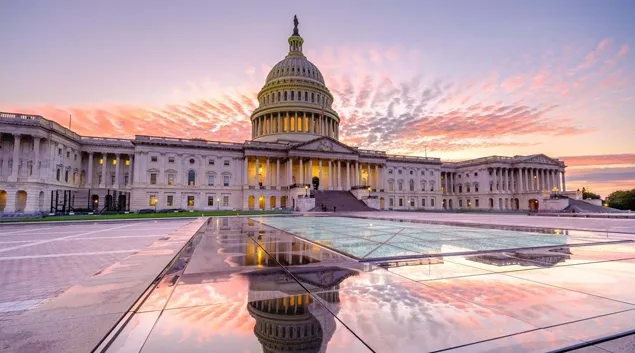
Photo: John Baggaley/Getty Images
A bipartisan group of lawmakers, led by U.S. Sens. Catherine Cortez Masto,D-Nev., and Marsha Blackburn, R-Tenn., has introduced a new bill that would require Medicare Advantage plans to more quickly pay out provider claims and introduce monetary penalties for non-compliance.
The Medicare Advantage Prompt Pay Act, introduced in both chambers of Congress, is intended to offer more certainty to providers who contract with Medicare Advantage plans and ensure that seniors in particular aren't stuck with confusing bills.
According to the bill's authors, healthcare providers regularly report service and payment delays, inconsistent policies and inappropriate denials by MA plans. Currently, there are no clear guidelines for how quickly an MA plan has to reimburse providers for in-network claims, they said.
This creates unnecessary delays that could lead to providers dropping contracts with plans, jeopardizing in-network access to care for many who rely on Medicare Advantage, the lawmakers said.
WHAT'S THE IMPACT
The bill seeks to address these issues by requiring MA plans to pay providers faster and more reliably. It defines “clean claims” according to national standards, sets minimum timely payment standards, and aligns rules for in-and out-of-network claims.
The plans would have to pay at least 95% of clean claims – which are clearly defined in the bill – within 14 days for in-network claims and 30 days for out-of-network claims.
The bill would apply to covered services whether a provider and plan have a network contract or not, and would task plans with submitting information regarding their compliance with prompt payments.
It also authorizes regulators to consult those reports when considering a monetary penalty, which could be as high as a $25,000 fine, with interest accrual.
“More than half of seniors eligible for Medicare are enrolled in Medicare Advantage,” said Rep. Linda Sanchez, D-Calif. “However, too many are hit with confusing medical bills due to delayed and inconsistent Medicare Advantage billing practices. Our bipartisan bill will bring much-needed clarity to the system, ensuring healthcare providers are paid promptly and patients aren’t hit with unexpected bills long after they received care.”
The legislation is endorsed by the Federation of American Hospitals; American Hospital Association; National Rural Health Association; American Academy of Family Physicians; America’s Essential Hospitals; American Society of Anesthesiologists; American Psychiatric Association: Bipartisan Policy Center Action; Nevada Hospital Association; Texas Hospital Association; California Hospital Association; Vizient; and OCHIN.
In a letter supporting the bill, the American Hospital Association said there are currently no existing prompt payment standards that require MA plans to provide timely payment to contracted providers.
“As a result,” the group said, “an AHA survey found that 50% of hospitals and health systems reported having more than $100 million in unpaid claims that were more than six months old. Among the over 700 hospitals surveyed, these delays amounted to more than $6.4 billion in delayed or denied claims that are more than six months old.”
While most states have prompt payment laws regulating fully insured and other state-regulated insurance types, these laws do not apply to MA plans, the AHA said.
THE LARGER TREND
The 2025 Omniscient Health Physician Medicare Income Report, released in August, found that Medicare Advantage plans pay physicians an estimated 10% to 15% less than what is paid by the government in traditional Medicare.
This can create negative margins for physicians, considering MA plans take roughly twice as long to reimburse providers as original Medicare, along with factoring in prior authorization and denials, the report said.
An estimated 54% of Medicare beneficiaries are enrolled in a MA plan.
Email: jlagasse@himss.org
Healthcare Finance News is a HIMSS Media publication.